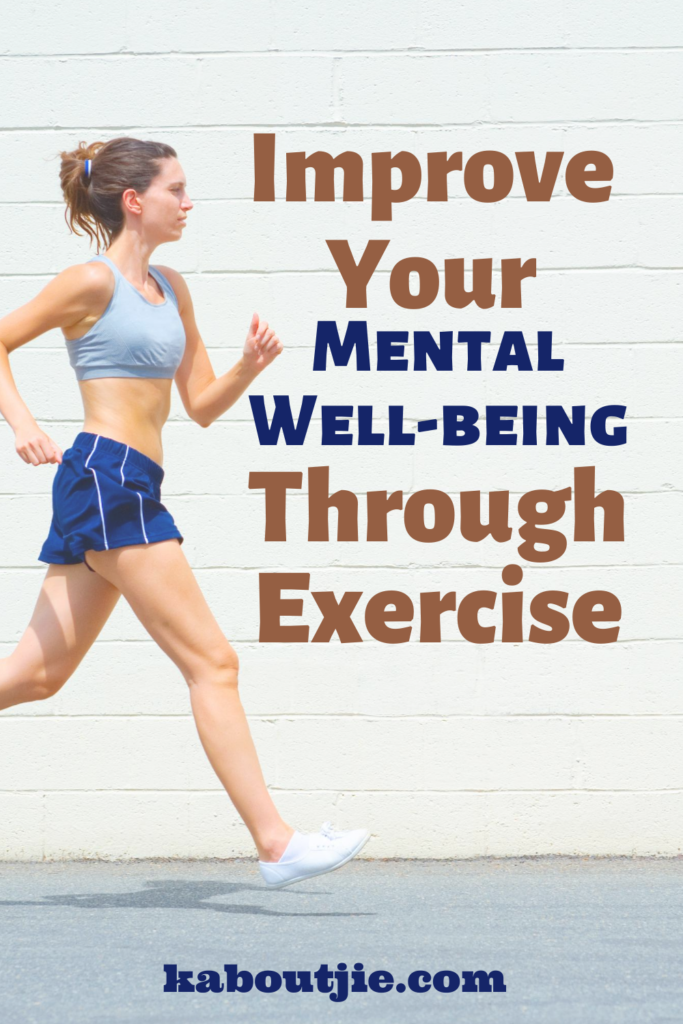The term mental well-being has a multi-functional definition since it involves various factors like:
- A sense of feeling positive about ourselves, and being capable of functioning well in relationships or individually.
- Being able to deal with life’s ups and down and coping when challenges arise.
- Feeling that you have a purpose in life and are being valued.
- Having freedom and control over your own life.
Mental health does not mean that you are happy the entire time. It is normal to something feel painful emotions like loss, grief, or failure. In this article we will be focusing on how being physically active can result in a healthier life, improving your mental well-being. Many celebrities have issues with mental health and people should not feel stigmatized because of it. You can read this post from Benjy Grinberg about his personal mental struggles.

How can exercise or physical activity positively influence your well-being?
Participating in frequent physical exercise can boost your self esteem and assist with reducing anxiety and stress. It can also help with avoiding mental health issues and enhancing the quality of life for those that struggles with problems relating to mental well-being.
Regular exercise can influence your mood
Being physically active has been shown to positively influence your mood. Researches established that participants in a study felt more relaxed, content and alert after being active as opposed to those that had periods of inactivity. It was also found that the influence on their mood was at it greatest when individuals started being physically active after initially their feelings were at a low point. Research indicated that low-intensity aerobic exercise for about half and hour, 3-5 days a week, continuously over a 12-week period, has had a positive affect in promoting positive moods.
Physical activity can reduce stress
When you go through events that is upsetting to you or make you feel vulnerable, our body’s reacts by creating a stress response which cause us to act differently and we experience emotions at a more intense level. Common signs of stress include:
- Sweating
- Loss of appetite
- Problems with sleeping
These symptoms are brought on by an increase of stress hormones in our bodies, also referred to as “fight of flight” response. Adrenaline and noradrenaline results in an increase in blood pressure, amplifying the heart rate as well as the rate we sweat, preparing our bodies for an emergency response. They can also lead to a reduction in blood flow to the skin, lessening stomach activity, while the stress hormone cortisol, releases sugar and fat into your system to increase energy levels. Exercising is an excellent way of relieving stress levels.

Exercise can boost your self-esteem
Exercise is not only beneficial for physical health, but also boosts your self-esteem. Self-esteem directly impacts how you perceive your self-worth and is a primary indicator of mental well-being and being able to cope with everyday life stressors. Physical activity has been found to positively affect self-worth and self-esteem in adolescents, children, adults, young adults and older people.
How physical activity can impact cognitive decline and dementia in the elderly
Advancements in healthcare have resulted in increased life expectancy and an expanding population of those older than 65 years. There has been an influx of the number of individuals with cognitive decline and in people that live with dementia. Being physical active has been identified as a protective element in studies that assessed risk factors for dementia. Exercise can assist in preventing further deterioration in functioning. It can also lower the chance of experiencing cognitive waning in those who do not suffer from dementia.
Influence on anxiety and depression
Physical activity has been used as a substitute treatment for depression whether on its own or in combination with psychological therapy and/or medication. Exercise can lower anxiety levels in individuals with mild symptoms and can be useful for treating clinical anxiety.
Conclusion
As you can see physical activity or exercise can be useful in improving mental well-being and for reducing stress, depression, and anxiety, with little to no side effects.
 Kaboutjie SA Mommy Blogs by Lynne Huysamen
Kaboutjie SA Mommy Blogs by Lynne Huysamen





Love this article full of great advise
healthy body, healthy mind
I love this, it helps me alot mentally, physically and spiritually and a great way to boost my immune system💖
Great, insightful article. Love the advice and tips. A healthy body calls for a health mind. If the mind is sane, the body can produce wonders 😊